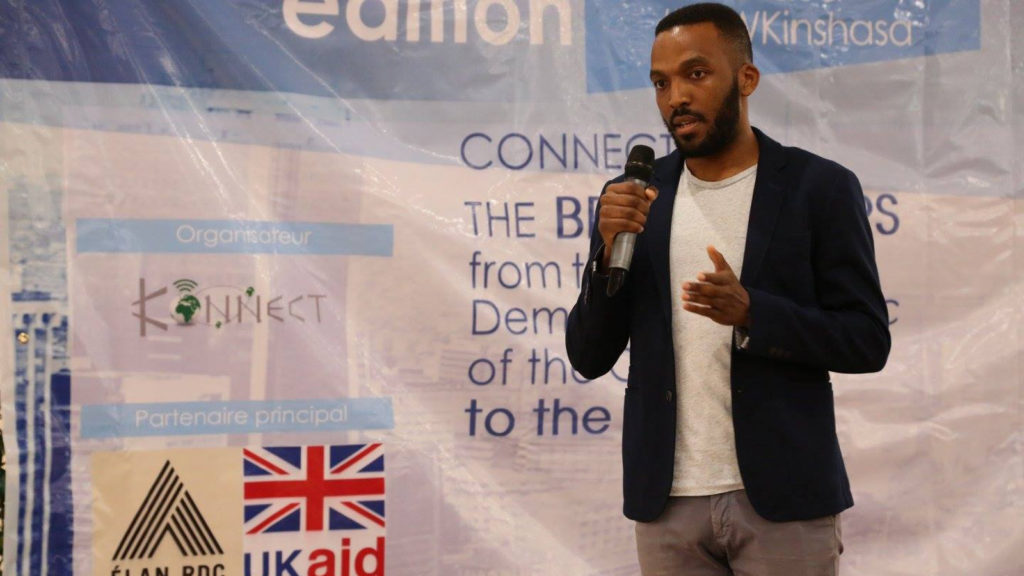South Africa’s esports scene is set for a major showdown as Hyprop and MTN introduce SHIFT COD, a Call of Duty tournament forming part…
One more dropped internet call, is just another day in life of tech startups in DRC

For Eliud Aganze who runs a business support hub in the eastern Democratic Republic of the Congo (DRC) city of Kivu, getting cut off on an online meeting or call is an all too common experience.
“Internet connections are slow, expensive and unreliable,” says Aganze, the founder and CEO of Kivu Hub.
He also cites erratic electricity supply as well as expensive ICT equipment as major handicaps slowing down the acceleration of startups in the DRC.
“Since the fibre optic network is not yet covering a large part of the country, we are still reliant on the satellite network,” he adds.
Tech startups in the DRC have to battle slow, expensive and unreliable internet connections
It isn’t hard to see why. The DRC — a country of an estimated 84-million people — has one of the lowest internet penetration rates in the world (see below graph). It is a mere 6.1%, according to December 2017 data from Internet World Stats. In contrast Kenya’s is at 85%, South Africa’s at 53.7% and Nigeria’s 50.2%.
Graphical depiction of the DRC’s internet penetration rate in comparison with other African countries (World Bank , CC-BY 4.0)
The past few years have seen a big push from Congolese startups in the remittances and payments space as well as those in the healthtech, agritech and edtech verticals.
Some startups have developed egovernment applications — all key critical services that the country needs. However, despite all these advances, the country’s startup ecosystem has received little support from the government, nor has the government prioritised ICT infrastructure in the country.
So why is the Congolese government not supporting its fledgling tech startup ecosystem?
Aganze reckons the Congolese government’s prioritisation of the mining industry has led it to neglect other sectors.
‘Big potential market’
Despite this, entrepreneur Jean-Louis Mbaka (pictured above) sees a lot of potential in the DRC’s nascent digital economy. “It’s a big growing potential market, and we are not worried about the future in this aspect,” says Mbaka, who is the co-founder of online real-estate platform Youdee.cd.
He founded the startup in 2016 with Thomas Strouvens and the company represented the country at the Seedstars Summit in Lausanne, Switzerland earlier this year after winning the 2017 Seedstars Kinshasa pitch event.
Last year Mbaka and Strouvens launched Kinshasa Digital in an effort to promote, support and accelerate innovative tech startups in the DRC’s capital, as well as shape the Congolese tech startup ecosystem.
This was followed in August last year by their first event — the Kinshasa Startup Summit. The one-day conference aimed to connect startups with corporates and was attended by more than 126 startups and 40 corporates.
In March Mbaka and Strouvens held one of the first major tech events to take place in the country, the Kinshasa Digital Week (KDW). Mbaka told Ventureburn this week that the event was aimed at raising awareness about the city’s tech ecosystem and connecting corporate executives with tech startups.
He says the initiative, which was sponsored by Facebook and Microsoft, received international media exposure from Bloomberg, France 24 and other international media outlets.
‘Tech innovation not the DRC’s top priority’
However, despite this growing tech startup ecosystem in the country, which includes hundreds of startups and several tech hubs and incubators — with the likes of Silikon Bantu, Kivu Entrepreneur, Konnect, Congo iHub, Congolia, Ingenious City, Lumumba Lab and Kobo Hub — the Congolese government appears to have little interest in development the tech startup ecosystem.
Perhaps the fact that Ventureburn initially struggled to find both the Ministry of Post, Telecom and New ICT (MINPTNTIC) and telecom regulator’s Autorite de Regulation des Postes et Telecom (ARPTC) websites (which we could not access) is telling of the Congolese government’s approach to the country’s tech ecosystem.
Ventureburn sought comment from the cabinet of the President of the Republic, but had not received a response by the time of publication.
Mbaka is frank when it comes to the government’s regard for the sector. “So far, it appears that tech innovation is not one of the country’s top priority,” he says.
“With that in mind, we believe it’s important for the ecosystem to engage the government or those who have the ears of the government,” he says, adding that the government could provide support through tech-friendly policies and through access to grants.
In the absence of government support, Mbaka says Congolese startups are now looking to the private sector. He has helped startups collaborate with more than 40 Congolese corporates through 100 “speed dating sessions” that were scheduled after the Kinshasa Startup Summit.
‘When you launch a business in Congo, you’re on your own’
José Zefu Kimpalou, who in 2016 co-founded healthtech startup WapiMED along with Steve Nkashama, says the private sector seems to understand the value of supporting startups. He points out that many Congolese corporates are involved in startup competitions and are backing local incubators.
His startup has developed a geolocated directory for care providers as well as MEDpay — a dedicated healthcare payment platform which allows its users to pay online, via mobile banking and with top-up cards — which he describes as a “Western Union or MoneyGram” for healthcare expenses in Africa.
But Kimpalou says in all, there is not much support from anyone. “Most of the time when you launch a business in Congo, you are on your own, there is not a really a structure that helps you and tries to tell you what mistakes you have to avoid,” he says.
Added to this he says a lack of business angels or venture capitalists (VC) means most of the time entrepreneurs have to find VCs in Europe, North America and Asia. Kimpalou adds that the political instability in the country “does not help” when it comes to looking for funding overseas or when ones tries to establish a market.
“We believe that if someone succeeds to go through such environmental instability, it is a good sign that the projects has strong fundamentals,” he says.
There are some signs of hope. The DRC’s Ministry of Industry plans to set aside $13.2-million over the next two years to support incubators in Kinshasa and Goma (according to an article published earlier this year). The idea is to back small businesses run by young people. Ventureburn could not establish if funds have been disbursed as yet.
But until it takes effect, entrepreneurs like Kimpalou and Mbaka will simply have to struggle on.
Featured image: Youdee co-founder Jean-Louis Mbaka (Supplied)
*Editor’s note (8 October 2018): An earlier version of this article erroneously stated and quoted Nicolas Zanghi as the co-founder of Kinshasa Digital. Ventureburn regrets the error.


